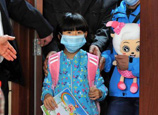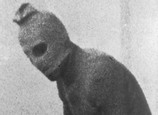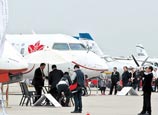
Huaxi, the most affluent village in China, has eyed tourism as the next leading engine for its economy, a month after the death of its legendary leader.
Sun Haiyan, deputy Party chief, said on Wednesday that the village in Jiangsu province's Jiangyin city attracted more than 2 million tourists in 2012, including 100,000 from overseas, and generated 600 million yuan ($97.2 million) in revenue.
"The revenue figure is not so much if you consider it in proportion with our village's gross income of 50 billion yuan last year, but tourism is definitely a potential driving force for our economy," he said.
Per capita GDP in Huaxi stood at 88,000 yuan in 2012, while the national per capita GDP averaged 38,354 yuan, according to official statistics.
The village's prosperity is largely credited to Wu Renbao, who died of lung cancer on March 18. Wu became a household name for leading his fellow villagers to stick to the path of a collective economy and building Huaxi into one of the most prosperous villages in China.
Sun said Huaxi's new leadership, including Wu Renbao's son, Party chief Wu Xie'en, has been striving to reshape its economic structure, upgrading the industry-dominant economy toward a modern service industry-led model.
Steal and textiles have given way to finance, sea transport and logistics in recent years, he said, as the former generated deficits given China's overcapacity in the two sectors and the global economic downturn.
As for tourism, the village will invest more in eco-tourism and innovation, Sun said. "Now we have some 80 tourists sites, including a museum that shows our history of common prosperity and a golden sculpture of a cow weighing 1 metric ton. We will come up with more innovative ideas to attract tourists."
He said the village will expand its aviation business by increasing the number of helicopters for sightseeing over the next three years.
Earlier reports suggested the village is facing increasing suspicion over its economic sustainability.
The Long Wish Hotel International, a five-star hotel, has been losing money since it opened in 2011, and the stock price of the village's listed company, Jiangsu Huaxi Group, has become a junk bond, Beijing News reported last week.
















 Restaurant told to end promotion with bikini waitresses
Restaurant told to end promotion with bikini waitresses


![]()
